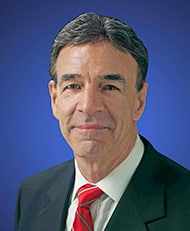
The inspiration for my trash talk is Connie Wiggins, Executive Director of Gwinnett Clean and Beautiful (GCB). For over 35 years, Gwinnett Clean and Beautiful has been at the forefront of efforts to not only keep the county clean and beautiful, but to educate residents on the ways they can help.
In the 1980s, Gwinnett Clean and Beautiful established the first county-wide newspaper and aluminum drop-off recycling centers. GCB was “recycling before recycling was cool”. Over the years, GCB has also created a junked car ordinance, instituted the state’s first Christmas tree recycling program, designed and built Georgia’s first public/private recycling center, implemented a new curbside recycling program and created the first “Adopt A Stream” program in Georgia.
Along the way, under Connie’s leadership, GCB has become the “go to” source for cities and the county seeking advice and assistance with their solid waste programs. I recently had an opportunity to interview Connie on the internet radio show “All About Gwinnett”. Some of the information she provided about trash, recycling and efforts to keep our county clean, was very enlightening,
As an example, that new carpet you just had installed, it’s trash—discarded plastic bottles to be specific. After a plastic bottle has lived a full and rich life and is sent off for recycling, it may well find its way to Dalton, GA. Manufacturers like Mohawk and Shaw Industries process them and uses them to make carpet. Another interesting fact that Connie shared is that an aluminum beverage can provides enough energy to supply three hours of electricity for an average home.
But aluminum cans are rarely involved with the generation of electricity. Instead, they are brought back to life as, you guessed it, aluminum cans. Most of the aluminum cans that are recycled in Gwinnett County end up in Greensboro, GA, where they are melted down and formed into sheet aluminum that is used to manufacture new cans.
Recycling obviously accomplishes considerably more than reducing the amount of trash that’s deposited in landfills. It has a significant economic impact in terms of creating jobs and providing raw materials for manufacturing throughout the state.
The same economic conditions that influence the price of commodities also affects the price of recyclable materials. Unfortunately, prices have declined recently, and that has altered the economics of recycling. Some services are no longer available. As an example, with the drop in the price of paper recyclables, it’s no longer profitable for companies to place newspaper and magazine receptacles in many areas. As a result, the only option for paper is a curbside recycling bin or dropping it off at a recycling center such as the one in Snellville.
To maximize recycling’s positive economic impact, it’s essential that items are disposed of properly. As an example, plastic bags (such as those from grocery and retail stores) should only be put in receptacles specifically designated for them. If they are placed in curbside bins, they get tangled up with other items and in the machinery used in processing. That turns them into unusable garbage which ends up in a landfill, rather than in a product manufactured from recycled materials.
Keeping Gwinnett County clean and beautiful involves considerably more than recycling. GCB has a number of programs that focus on removing litter, keeping streams clean and protecting stormwater systems. If you’d like more information about recycling, litter prevention or environmental clean-up, go to GCB’s web site—www.gwinnettcb.org.
If you’d like to listen to the interview with Connie Wiggins, go to http://bit.ly/1KCLXK4
Dave Emanuel is Vice President of Random Technologies, a manufacturing company in Loganville, and a Snellville City Councilman. To read more from Dave Emanuel visit http://www.cuttothe-chase.net

